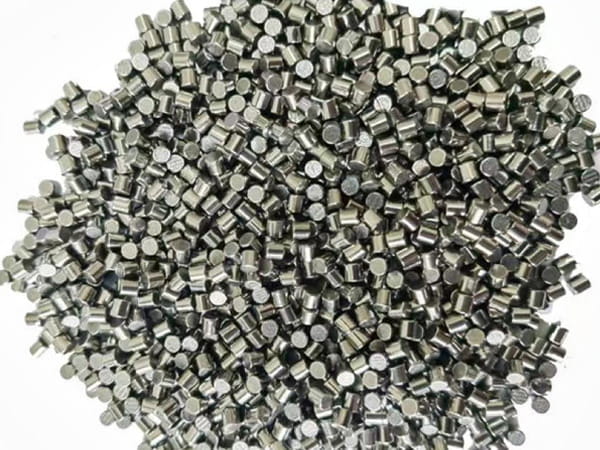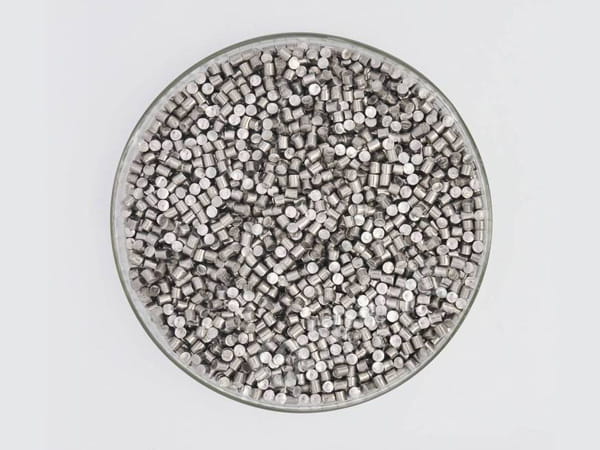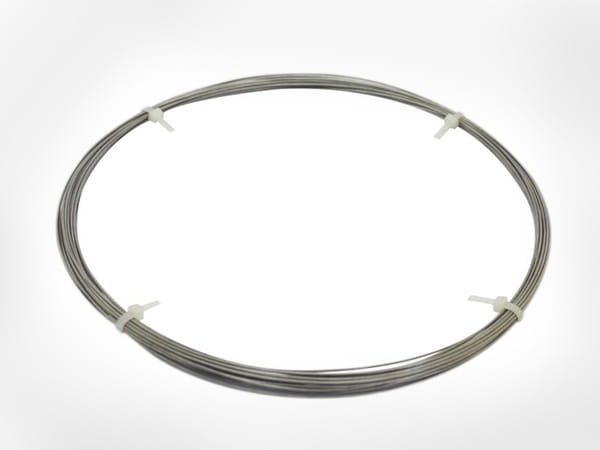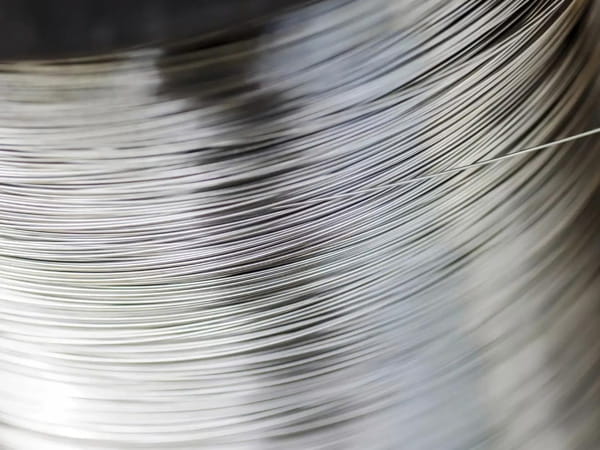Hafnium
Hafnium has a strong ability to capture the neutron, making it an excellent material for control rods in nuclear reactors. The nuclear industry roughly consumes half of the Hf produced every year. Hafnium is also used as an additive to alloys. Recently, scientists at Intel and IBM found hafnium-based compounds can be applied in gate insulators to make the processors smaller. Hafnium wires and other Hf parts are also used in plasma cutting because of their ability to shed electrons into the air. Cut hafnium wire could be inserted into copper parts to make a cutting tip for the plasma cutter.
Hafnium (Hf) Wire, a silvery metal that can be processed into various shapes and sizes, is available in different grades from QK depending on the specific application it will be used for. The main industrial application of hafnium wire is as a plasma emitter for plasma-cutting machine electrodes. Our high-quality Hafnium Wire is tailored to meet the unique needs of each customer.
Hafnium (Hf) Properties:
| Formula | Hf |
| Density | 13.31g/cm3 |
| Melting point | ~2227℃ |
| Boiling point | ~4602℃ |
| CAS | 7440-58-6 |
Hafnium (Hf) Wire Specifications:
| Purity | Hf+Zr≥99.9%, Zr≤2.5% | |
| Size | Single Wire | 1.07, 1.2, 1.5 2.0mm diameter × 1000mm (Straight Wire) |
| Coil Wire | 1.07, 1.2, 1.5, 1.6, 2.0 mm dia. x L φ0.1~3mm × L mm | |
| Custom | ||
| Shape | It can be straight, in coils, or on spools. | |
Hafnium (Hf) Wire Properties:
- High-temperature resistance
- Corrosion resistance
- Oxidation resistance
- Easy processing
- Rapid heat absorption and heat release
Hafnium (Hf) Wire Applications:
- Aerospace industry: hafnium wire is used to manufacture high-temperature components such as aircraft engine blades and rocket engine nozzles.
- Nuclear industry: hafnium wire is used as a cladding material for nuclear fuel rods due to its excellent neutron-absorbing properties.
- Petrochemical industry: hafnium wire is used to produce corrosion-resistant reactors for chemical processing.
- Alloying element: hafnium wire can be used as an alloying element in combination with other materials such as tungsten and chromium to enhance their properties.



